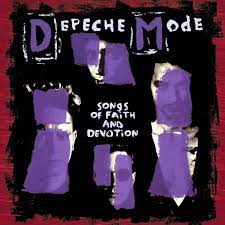
From wikipedia.org / © Ralph_PH
I have another reason to loathe Donald Trump, the 45th and also, alas, 47th president of the United States of America. He’s made me like Bruce Springsteen.
On May 14th, at Manchester’s Co-op Live Arena, on the opening night of his Land of Hope and Dreams tour, Springsteen – the famously sideburned, famously plaid-shirt-wearing singer-songwriter-guitarist from New Jersey – kicked off proceedings by making a speech. He declared: “…my home, the America I love, the America I’ve written about, that has been a beacon of hope and liberty for 250 years, is currently in the hands of a corrupt, incompetent and treasonous administration. Tonight, we ask all who believe in democracy and the best of our American experiment to rise with us, raise your voices against authoritarianism and let freedom ring!” Later on, he described the head of that ‘corrupt, incompetent and treasonous administration’, i.e., Trump, as an ‘unfit president’ and proclaimed, “The America l’ve sung to you about for 50 years is real and regardless of its faults is a great country with a great people. So we’ll survive this moment.”
Needless to say, it wasn’t long before Trump’s overworked posting-thumb was busy knocking out a retort on his Truth Social platform. He called Springsteen ‘as dumb as a rock’ and added: “This dried out ‘prune’ of a rocker (his skin is all atrophied!) ought to KEEP HIS MOUTH SHUT until he gets back into the Country, that’s just ‘standard fare’. Then we’ll all see how it goes for him!”
Also joining in was Trump’s number-one music-industry sycophant Kid Rock, now a not-so-kiddish 54 years old. It’s telling that the only song I’ve heard by him was the 2008 hit All Summer Long – a Kid Rock number whose best bits weren’t actually written by Kid Rock. They come from Lynyrd Skynyrd’s Sweet Home Alabama (1974) and Warren Zevon’s Werewolves of London (1978). “Just another person with TDS (Trump derangement syndrome) at the highest levels,” Kid Rock said of Springsteen. “To be in Europe talking junk about our president who gets up and works his ass off for this country, every day, and his administration is doing such great things… Thank God for him. But to do that in Europe… what a punk move.” Kid Rock, please note. To me and many folk my age, calling Bruce Springsteen a ‘punk’ is amusing. But it’s not the insult you think it is.
Since Kid Rock believes Trump’s administration is ‘doing such great things’ for the USA, he’s surely a big fan of Trump’s vicious anti-immigrant policies. Incidentally, the restaurant he’s licensed in Nashville, the not-at-all-stupidly-titled Kid Rock’s Big Ass Honky Tonk Rock N’ Roll Steakhouse, lately and mysteriously sent kitchen-staff home during a weekend when Trump’s brutal Immigration and Customs Enforcement (ICE) agency were conducting operations in the city. I’m sure the reason for this wasn’t anything dodgy. Not because, say, the restaurant was employing people who were immigrants lacking permanent legal status and might get dragged off and incarcerated.
I first encountered the musical oeuvre of Bruce Springsteen, or ‘Loose Windscreen’ as I liked to call him, while I was a fifth-year pupil at Peebles High School in the early 1980s. Fifth and sixth-years pupils, the senior members of the student body known as the ‘Upper School’, were entitled to their own common room, where there was an elderly record-player and speakers you could play music on during the morning, lunchtime and afternoon breaks. This was normally monopolised by the Upper School’s sizeable heavy-metal contingent and it blasted out a lot of AC/DC, Deep Purple, Iron Maiden, Judas Priest, Led Zeppelin, Motorhead, Rainbow, the Scorpions, Thin Lizzy and Whitesnake.
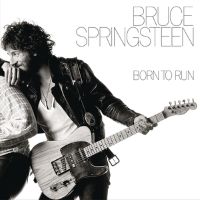
© Columbia Records
However, once in a while, somebody would manage to get past the phalanx of heavy-metal fans surrounding the record player and slap something a little different on it. One such record was Springsteen’s 1975 breakthrough album, Born to Run. Hearing it, I thought it was all right and, at the time, the title track seemed a stormer. (Nowadays, having heard it a zillion times, I’m less keen on it.) So, Mr Windscreen’s, sorry, Mr Springsteen’s music seemed perfectly fine to me. But it wasn’t anything I’d go out of my way to listen to.
Incidentally, a few years earlier, my favourite band had been the Boomtown Rats, the new wave outfit fronted by Bob Geldof. Last week, I listened to Rat Trap, the Boomtown Rats song that topped the UK charts in 1978, for the first time in decades. And I was surprised by how, well, Springsteen-esque it sounds now.
By the mid-1980s I was a student at Aberdeen University. I quickly discovered that a number of my fellow-students were seriously into Bruce Springsteen. They were so into him they apparently knew everything about every second of music he’d ever committed to vinyl – that, say, if you played the third of the nine tracks on the Belgian version of the 1973 LP Greetings from Ashbury Park N.J. backwards, you’d hear him break wind in the studio. Yes, stuff like that.
These Bruce-fans – whom some unkindly referred to as ‘Bruce-bores’ – were, without exception, male. Actually, a good proportion of them seemed to be engineering students and had names like ‘Morris’. Also, they never called their hero ‘Bruce’, but used the annoying moniker ‘The Boss’. This struck me as paradoxical since they were always going on about what a man of the people he was. Surely, then, a blue-collar, working-class guy like him would be against the bosses?
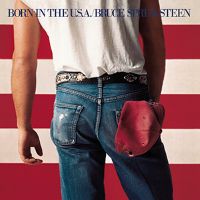
© Columbia Records
This was a bad time if, like me, you were surrounded by Bruce-bores, sorry, Bruce-fans, and you didn’t believe as they did that Springsteen was the greatest thing to have happened to music since Mrs Beethoven gave birth to little Ludwig van. For, in 1984, he released Born in the USA, an album that sold over 30 million copies worldwide and spawned no fewer than seven singles. As with most of Springsteen’s output, it struck me as perfectly decent, but not remarkable, journeyman rock music. But it subsequently became annoying because people around me never seemed to stop playing it.
The Born in the USA singles received heavy rotation in the place where I worked part-time during my second year as a student, Ritzy’s Nightclub. At Ritzy’s I was a member of the floor-staff – meaning I spent most of my time collecting empty glasses and loaded ashtrays from the punters’ tables, cleaning them, and returning the glasses to the bar-shelves and the ashtrays to the tables.
I’ve said before on this blog that of the many jobs I’ve had in my life, I hated the Ritzy’s one most. I had to work until 2.00 AM every Friday and Saturday night while my mates were out partying. The glasses I collected were often phenomenally grotty with cigarette ends and even puke floating around in them. Many of the punters were workers in Aberdeen’s then-flourishing oil industry, who made tons of money and believed their hefty earnings allowed them to behave like knob-heads at all times, especially towards serfs like myself. And the music spewing out of the nightclub’s speakers was gruesome – all the vacuous New Romantic stuff like Duran Duran, Spandau Ballet and Wham that dominated the UK charts during 1984-85. In that company, Springsteen’s songs didn’t seem so bad. But having to hear them repeatedly in that environment quickly made me sick of them too.
The first Born in the USA single out of the blocks was Dancing in the Dark, which I came to associate with a mid-week gig I had at Ritzy’s. This was a regular evening the nightclub held for the over-30s, which was known in local parlance as ‘Grab-a-Granny Night’. It featured a live band who performed cover versions of songs currently in the charts and Dancing in the Dark seemed a particular favourite of the band’s frontman, a bloke called Stan. The sound of Stan warbling his way through the song, and the sight of him simultaneously attempting some Boss-like dancing onstage whilst apparently in possession of two left feet, are burned into my memory.
In the summer of 1985, I developed a fully-fledged aversion to Bruce Windscreen, sorry, Springsteen. The summer was going badly for me for various financial, personal and health reasons, and my mood wasn’t helped by the fact that every single day that July and August saw rain piss down relentlessly on Aberdeen, turning the grey granite the city was built with oppressively black. At one point I found myself sharing a flat with a good friend, one Andrew J. MacRury, who was also having a bad summer. And yes, Andy was an avid Bruce-bore, sorry, Bruce-fan. I worked night-shifts and, a dozen times each day, while I was in bed trying to snatch some sleep, I’d be rudely awoken by my friend playing the title track of Born in the USA in the next room, at full blast, in a desperate attempt to cheer himself up. Repeatedly, every day, I was practically blasted out of bed by the sideburned one hollering: “Booooorn… in the US-Aaaa! I wuz booooorn… in the US-Aaaa!”
Thereafter, if anyone show signs of talking enthusiastically about Bruce Springsteen, let alone play some music by him, I’d run for the hills. In March 1992, when to great fanfare he released two albums on the same day (Human Touch and Lucky Town), I think I went into hiding.
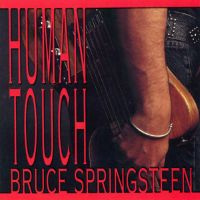
© Columbia Records
Now any Bruce-bores, sorry, Bruce-fans reading this will no doubt be shocked by my attitude towards their hero and accuse me of being deficient in musical taste. To that I would reply I wasn’t the only person on the planet unswayed by the charms of Mr Springsteen. The legendary radio DJ John Peel, for example, once said of Springsteen’s appeal: “It utterly mystifies me. I can’t see it at all. I mean, when he first started out… it sounded to me like sub-Dylan stuff. And it just doesn’t ring true.” Indeed, the John Peel Wiki notes that Peel “almost never played any of Springsteen’s material on his show and scarcely missed an opportunity to compare him unfavourably with other artists such as Half Man Half Biscuit.”
Certain musicians have been less than enthralled by him too. The Rolling Stones guitarist Keith Richards, while describing Springsteen as ‘a nice guy, a sweet guy’, has been scathing about his musical ability. He wrote in his 2010 biography Life, “If there was anything better around, he’d still be working the bars of New Jersey.” Meanwhile, Irish folk-rock troubadour Van Morrison once grumped about what he saw as Springsteen’s lack of originality. As far as Van Morrison was concerned, he’d nicked all his ideas from, er, Van Morrison. “For years people have been saying to me, ‘Have heard this guy Springsteen? You should really check him out!’ I just ignored it. Then four or five months ago I was in Amsterdam, and a friend of mine put on a video. Springsteen came on the video, and that was the first time I ever saw him, and he’s definitely ripped me off.”
However, in times of great adversity, you have to take sides – even the sides of folk whom, until now, you’ve regarded as your enemies. For instance, the cops had to join forces with the prisoners in John Carpenter’s Assault on Precinct 13 (1976) when faced with an onslaught by the murderous gang Street Thunder. And James Bond (Roger Moore) had to team up with Jaws (Richard Kiel) in Lewis Gilbert’s Moonraker (1979) to overcome the genocidal plans of Hugo Drax (Michael Lonsdale). I feel the same way about Bruce Springsteen. I’ve found much of his music stodgy, and at times his fans have driven me up the walls, but I’ll back him all the way in his struggle against Trump, who’s busy turning Springsteen’s homeland into an authoritarian state run by white supremacists, loopy evangelical Christians, billionaire tech-bros and environment-wrecking oil barons.
Indeed, if Springsteen can do anything to get Trump out of office – arrange, say, for a million Bruce-bores, sorry, Bruce-fans to storm the White House – I’ll happily grow sideburns, and wear a plaid shirt for the rest of my life, and listen to Born in the USA a dozen times a day. Hail to the Boss!
Also, while I don’t have much regard for Springsteen’s music, I still think it’s light-years better than that Big Ass Honky Tonk Rock N’ Roll shite peddled by Kid Rock.
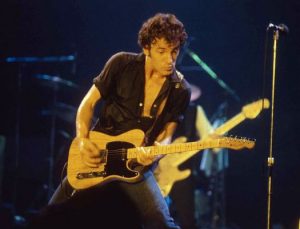
From wikipedia.org / © Carl Lender


